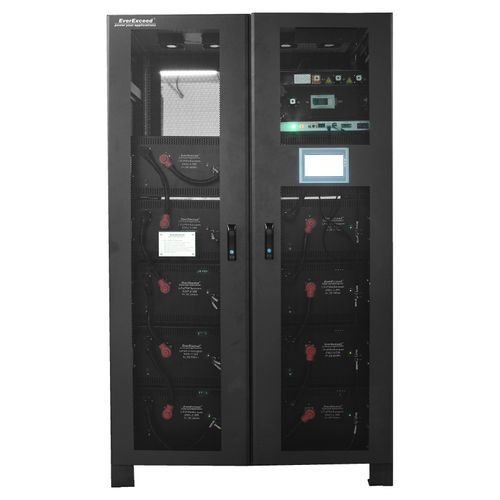
Get a Quote
How to Calculate UPS Battery Run Time
When it comes to safeguarding your essential equipment from unexpected power outages, an Uninterruptible Power Supply (UPS) is an indispensable tool. One of the most critical aspects of any UPS system is understanding how long it will provide power during an outage—commonly known as UPS battery run time. Knowing how to calculate this run time accurately is key to ensuring that your systems remain operational when you need them most. In this blog, we’ll explore the factors that influence UPS battery run time, the importance of battery backup time, and how understanding UPS battery charging time can help you maintain continuous protection.
Understanding UPS Battery Run Time
UPS battery run time refers to the duration your UPS can supply power to connected devices during a power outage. This time is crucial because it determines how long your critical systems will stay online without main power. Various factors impact the run time of a UPS, and understanding these can help you make informed decisions about your power backup strategy.
Factors That Affect UPS Battery Run Time
Several elements contribute to how long your UPS battery will last during a power failure. Here are the key factors:
- Battery Capacity: The capacity of your UPS battery is one of the most significant factors affecting run time. A battery with a higher capacity will provide power for a longer period.
- Load Size: The amount of power your connected devices require, known as the load, plays a critical role. A higher load means the battery will drain faster, reducing run time.
- Battery Condition: The age and condition of your UPS battery also affect its performance. Over time, batteries lose their capacity, leading to shorter run times.
- Environmental Conditions: Temperature and humidity levels can impact battery efficiency. UPS batteries tend to perform better in controlled environments.
Understanding these factors helps you calculate an approximate battery backup time and plan accordingly to keep your systems running smoothly during outages.
Why Calculating UPS Battery Run Time is Important
Knowing how to calculate your UPS battery run time is essential for several reasons. It allows you to:
- Plan for Outages: By understanding your battery run time, you can ensure that your most critical devices remain operational until power is restored or backup generators kick in.
- Optimize System Performance: Accurate run time calculations help you optimize the load on your UPS, ensuring that you're not overloading the system and reducing battery life.
- Ensure Business Continuity: For businesses, maintaining operations during a power outage is crucial. Knowing your battery run time allows you to prepare and mitigate potential losses due to downtime.
How to Estimate UPS Battery Run Time
Estimating UPS battery run time doesn’t require complex calculations, but it does involve considering several factors. The battery’s capacity, the total load on the system, and the efficiency of the UPS all play into the equation.
Assessing Battery Capacity
The capacity of your UPS battery is typically measured in ampere-hours (Ah). This number indicates how much charge the battery can hold and directly influences the run time. For example, a battery with a higher Ah rating will generally last longer under the same load than one with a lower rating.
Understanding Your System's Load
The load refers to the total power consumption of all devices connected to the UPS. It’s important to calculate the load accurately, as this will affect the battery backup time. If the load is too high, the UPS will not be able to sustain power for long, so balancing the load is crucial.
Considering UPS Efficiency
The efficiency of your UPS system also impacts run time. A more efficient UPS will convert battery power to usable energy more effectively, extending the run time. When estimating run time, it's important to factor in the efficiency rate of your UPS to get a more accurate picture.
Using Manufacturer Guidelines
Many UPS manufacturers provide run time estimates based on typical loads. These can serve as a useful reference point, especially if you’re unsure about your calculations. However, always tailor these estimates to your specific setup for the most accurate results.
The Role of UPS Battery Charging Time
While UPS battery run time is critical, it's equally important to understand UPS battery charging time. After an outage, your UPS battery will need to recharge to be ready for the next power disruption. Knowing how long this takes can help you plan for periods of vulnerability when your battery is not fully charged.
Factors Influencing Charging Time
Several factors influence how quickly your UPS battery can recharge:
- Battery Size: Larger batteries take longer to recharge fully.
- Charger Output: The power output of your charger determines how quickly the battery will recharge. Higher output means faster charging.
- Battery Condition: Older or degraded batteries may take longer to recharge, or may not recharge fully.
- Power Supply: The stability of the main power supply during the charging process can affect charging time.
Importance of Timely Charging
Ensuring that your UPS battery is charged and ready for the next outage is crucial for maintaining uninterrupted protection. Regularly monitoring UPS battery charging time and ensuring that your battery is in good condition will help you avoid unexpected downtime.
Maximizing Battery Backup Time
To get the most out of your UPS system, it's important to maximize battery backup time. Here are some strategies to consider:
Regular Maintenance
Regularly maintaining your UPS and its battery is essential. This includes checking connections, cleaning terminals, and ensuring the battery is in good condition. Proper maintenance helps to extend the life of your battery and ensures optimal performance.
Load Management
Managing the load on your UPS is crucial for maximizing battery backup time. Disconnect non-essential devices during an outage to preserve power for critical systems. Consider using energy-efficient devices that require less power and extend the overall run time.
Battery Replacement
Over time, even the best-maintained batteries will degrade and lose capacity. Replacing old batteries with new, high-capacity ones can significantly extend your UPS battery run time and ensure that your systems remain protected.
Conclusion
In conclusion, understanding and accurately calculating your UPS battery run time is vital to ensuring uninterrupted operations during power outages. By factoring in elements such as battery capacity, system load, and charging time, you can optimize your backup power strategy and maintain business continuity even in the face of unexpected power failures.
EverExceed is your trusted partner in delivering reliable and efficient UPS systems designed to maximize battery backup time and minimize downtime. With a commitment to quality and innovation, EverExceed provides power solutions that meet the demands of businesses across various industries. When it comes to safeguarding your critical operations, trust EverExceed - to deliver the performance and peace of mind you need. Explore our advanced UPS solutions today and secure your operations against power disruptions.


